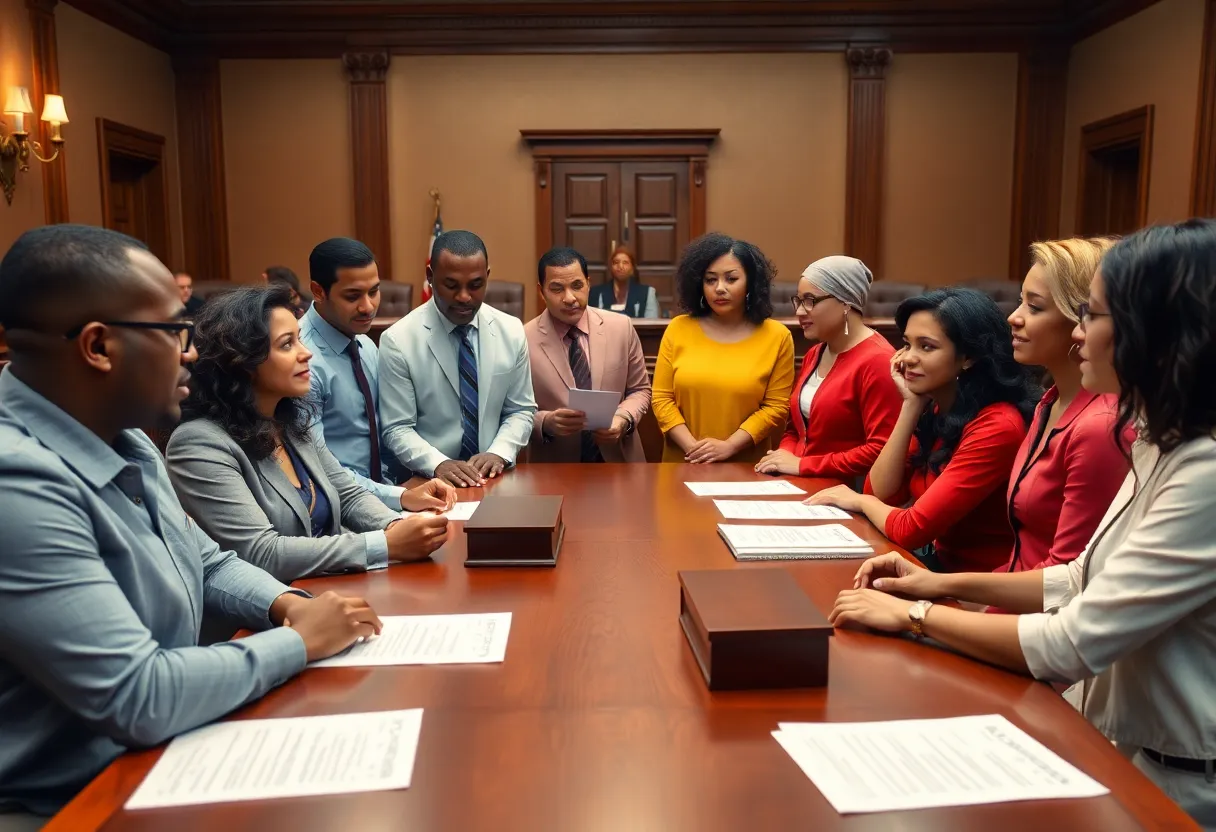News Summary
Louisiana has officially appealed to the U.S. Supreme Court to overturn a key provision of the Voting Rights Act in the case of Louisiana v. Callais. This case examines the implications of race considerations in redistricting and could transform established voting rights. The court has been asked to clarify whether the creation of a majority-Black congressional district infringes on the 14th or 15th Amendments. With hearings scheduled for October 15, the case could have widespread effects on voting rights and representation across America.
Louisiana has officially appealed to the U.S. Supreme Court with a brief requesting the overturning of a pivotal provision within the Voting Rights Act. The case, known as Louisiana v. Callais, focuses on the implications of race considerations during the redistricting process and could potentially reshape voting rights as established over the past decades.
The Supreme Court has called for parties involved to address whether creating a second majority-Black congressional district violates the 14th or 15th Amendments of the U.S. Constitution. The 14th Amendment primarily concerns congressional representation, while the 15th Amendment ensures that individuals cannot be denied the right to vote based on race.
If the Supreme Court concludes that Louisiana is infringing upon constitutional rights, it could have far-reaching effects, calling into question the very foundation of the Voting Rights Act. Originally passed in 1965, the Act aimed to safeguard voters’ rights as outlined in the 14th and 15th Amendments and has been strengthened through five amendments. However, recent federal court rulings have increasingly weakened its provisions, raising concerns among voting rights advocates.
In 2024, the state of Louisiana established a second majority-Black congressional district due to a federal ruling that found the 2022 congressional map in violation of the Voting Rights Act. However, now, Louisiana’s Attorney General argues that implementing this additional district is unconstitutional based on equal protection principles. This shift marks a significant turnaround for the Attorney General, who had previously supported the creation of the second Black district.
With the Supreme Court scheduling further arguments for October 15, the potential for significant re-evaluation of the Voting Rights Act is high. This case has also affected previously strong alliances between state Republican leaders and Black voters, disrupting collaborative support for the 2024 map.
As part of their defense, representatives of Black voters have steadfastly supported the constitutionality of Section 2 of the Voting Rights Act. In parallel, Louisiana has contested the validity of Section 2 in various other redistricting cases, suggesting a broader legal battle over the interpretation of race in electoral mapping.
The Supreme Court’s decision is poised to set a crucial precedent regarding how race is involved in future congressional redistricting efforts. The challenges launched by Louisiana emphasize a contention that race-based districting is against the equal protection tenets enshrined in the Constitution, which, in essence, could lead to a reduction in majority-Black districts across the state, adversely affecting the representation of minority communities.
Furthermore, white voters are slated to respond to the briefs regarding the challenge against Louisiana’s current congressional districts by September 17. The justices’ inclination to revisit prior decisions that had upheld protections under the Voting Rights Act suggests an intention to reconsider how race impacts electoral fairness.
Louisiana and various stakeholders in this case are navigating a complex web of legal, historical, and social issues that reflect broader conversations surrounding race and representation in America. The outcome of this case at the Supreme Court could significantly alter the landscape of voting rights and redistricting not just in Louisiana but potentially across the nation.
Deeper Dive: News & Info About This Topic
- NBC News: Louisiana Supreme Court Race & Voting Rights Act
- Wikipedia: Voting Rights Act of 1965
- MSNBC: Louisiana Republicans & Voting Rights Act
- Google Search: Voting Rights Act
- Louisiana Illuminator: Constitutionality of Voting Rights Act
- Google Scholar: Voting Rights Act
- Democracy Docket: Louisiana’s Supreme Court Case
- Encyclopedia Britannica: Voting Rights Act
- Politico: Louisiana v. Callais & Voting Rights
- Google News: Louisiana Supreme Court Voting Rights

Author: STAFF HERE NEWORLEANS WRITER
The NEW ORLEANS STAFF WRITER represents the experienced team at HERENewOrleans.com, your go-to source for actionable local news and information in New Orleans, Orleans Parish, and beyond. Specializing in "news you can use," we cover essential topics like product reviews for personal and business needs, local business directories, politics, real estate trends, neighborhood insights, and state news affecting the area—with deep expertise drawn from years of dedicated reporting and strong community input, including local press releases and business updates. We deliver top reporting on high-value events such as French Quarter Festival, New Orleans Jazz & Heritage Festival, and Essence Music Festival. Our coverage extends to key organizations like the New Orleans Chamber of Commerce and Greater New Orleans, Inc., plus leading businesses in energy, healthcare, and education that power the local economy such as Entergy, Ochsner Health, and Tulane University. As part of the broader HERE network, including HEREShreveport.com, we provide comprehensive, credible insights into Louisiana's dynamic landscape.

